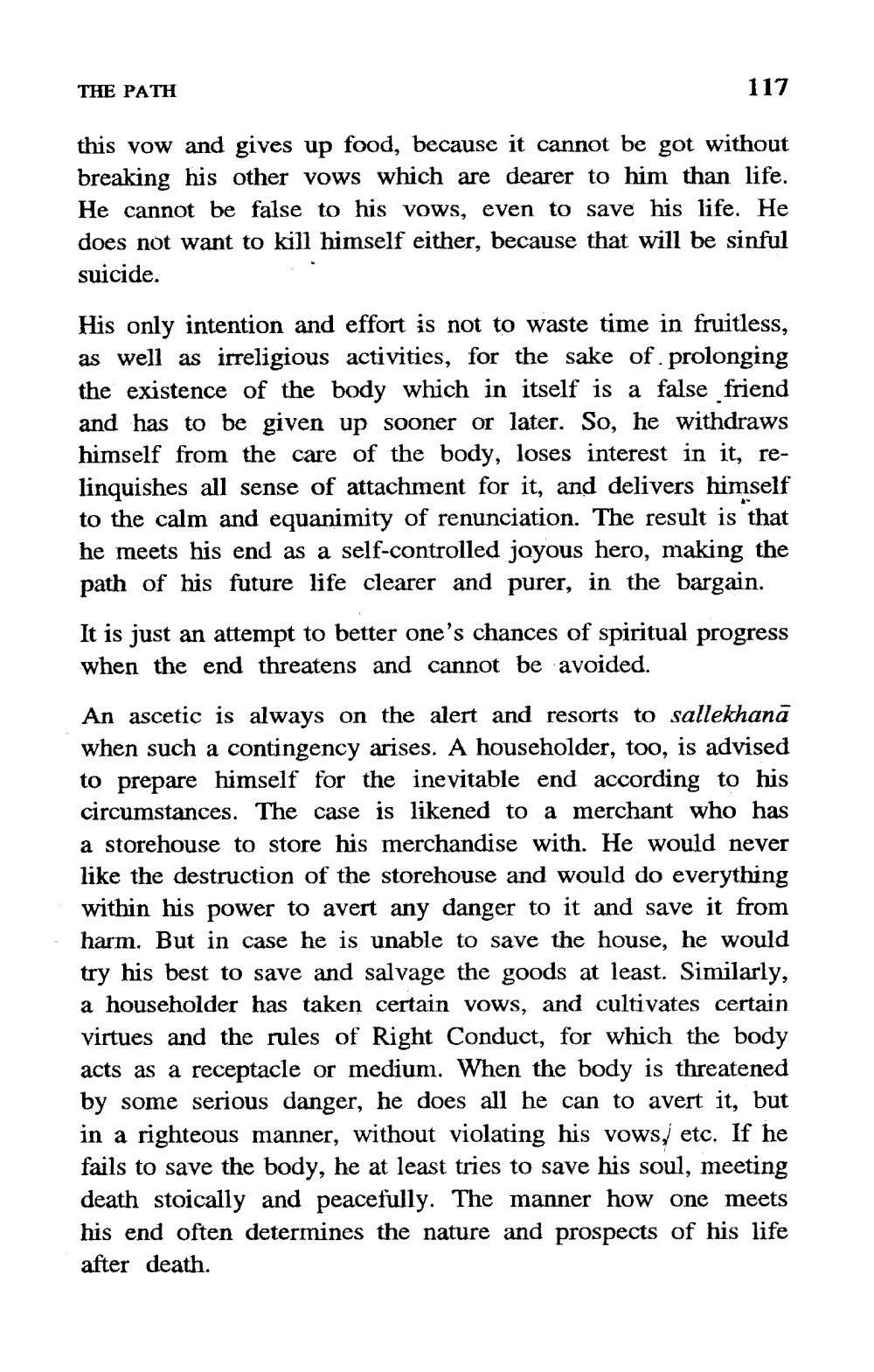________________
THE PATH
117
this vow and gives up food, because it cannot be got without breaking his other vows which are dearer to him than life. He cannot be false to his vows, even to save his life. He does not want to kill himself either, because that will be sinful suicide.
His only intention and effort is not to waste time in fruitless, as well as irreligious activities, for the sake of prolonging the existence of the body which in itself is a false friend and has to be given up sooner or later. So, he withdraws himself from the care of the body, loses interest in it, relinquishes all sense of attachment for it, and delivers himself to the calm and equanimity of renunciation. The result is that he meets his end as a self-controlled joyous hero, making the path of his future life clearer and purer, in the bargain.
It is just an attempt to better one's chances of spiritual progress when the end threatens and cannot be avoided.
An ascetic is always on the alert and resorts to sallekhanā when such a contingency arises. A householder, too, is advised to prepare himself for the inevitable end according to his circumstances. The case is likened to a merchant who has a storehouse to store his merchandise with. He would never like the destruction of the storehouse and would do everything within his power to avert any danger to it and save it from harm. But in case he is unable to save the house, he would try his best to save and salvage the goods at least. Similarly, a householder has taken certain vows, and cultivates certain virtues and the rules of Right Conduct, for which the body acts as a receptacle or medium. When the body is threatened by some serious danger, he does all he can to avert it, but in a righteous manner, without violating his vows, etc. If he fails to save the body, he at least tries to save his soul, meeting death stoically and peacefully. The manner how one meets his end often determines the nature and prospects of his life after death.




